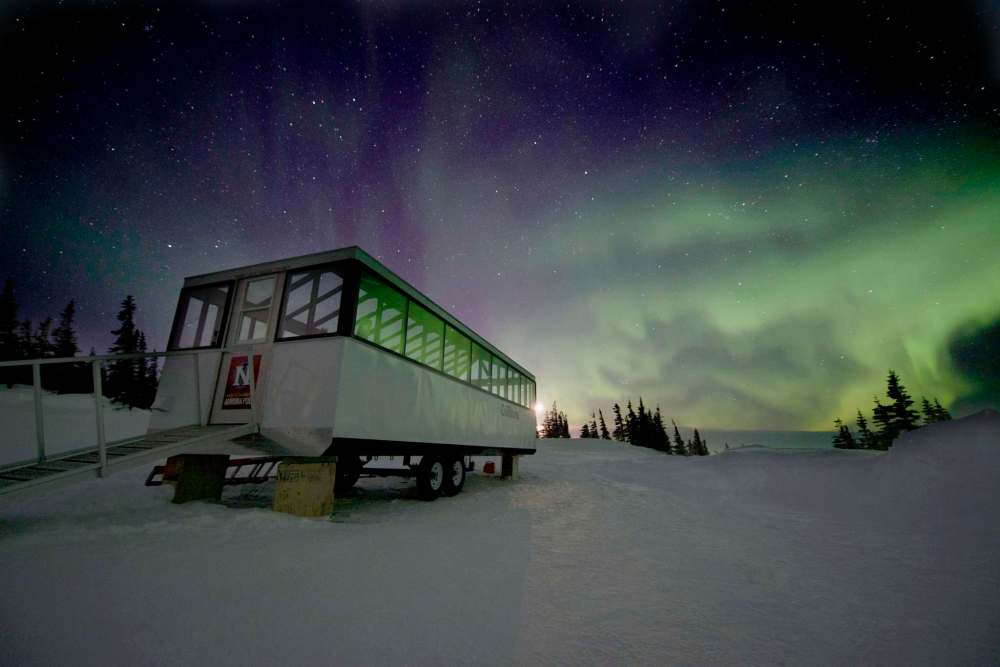Feds keeping presence in Churchill
Ottawa sending support to address town's immediate needs
Advertisement
Read this article for free:
or
Already have an account? Log in here »
To continue reading, please subscribe:
Monthly Digital Subscription
$1 per week for 24 weeks*
- Enjoy unlimited reading on winnipegfreepress.com
- Read the E-Edition, our digital replica newspaper
- Access News Break, our award-winning app
- Play interactive puzzles
*Billed as $4.00 plus GST every four weeks. After 24 weeks, price increases to the regular rate of $19.95 plus GST every four weeks. Offer available to new and qualified returning subscribers only. Cancel any time.
Monthly Digital Subscription
$4.99/week*
- Enjoy unlimited reading on winnipegfreepress.com
- Read the E-Edition, our digital replica newspaper
- Access News Break, our award-winning app
- Play interactive puzzles
*Billed as $19.95 plus GST every four weeks. Cancel any time.
To continue reading, please subscribe:
Add Free Press access to your Brandon Sun subscription for only an additional
$1 for the first 4 weeks*
*Your next subscription payment will increase by $1.00 and you will be charged $16.99 plus GST for four weeks. After four weeks, your payment will increase to $23.99 plus GST every four weeks.
Read unlimited articles for free today:
or
Already have an account? Log in here »
Hey there, time traveller!
This article was published 06/11/2017 (3002 days ago), so information in it may no longer be current.
OTTAWA — Amid mounting criticism over its response to the damaged rail line to Churchill, the federal government has deployed a senior bureaucrat to make sure the businesses in the remote northern town stay afloat.
Ottawa said it’s eyeing longer-term programs to stabilize the economy of the town, which lost most of the business to its Hudson Bay port in 2016.
Western Economic Diversification, the federal agency that delivers grants to Western Canada, has been sending a Winnipeg-based director, Lorne Pelletier, north to Churchill for three weeks every month “for an indefinite period” since July 4.

“Our government is actively supporting the community of Churchill to address immediate needs and resulting economic impacts,” wrote Karl Sasseville, a spokesman for Innovation, Science and Economic Development Minister Navdeep Bains.
Pelletier had visited Churchill before the May 23 washout of the rail line, but now maintains an office at the town complex.
His role is separate from the talks aimed at transferring the port and damaged rail line into local hands, and Transport Canada’s Nov. 12 deadline for Omnitrax to repair the line or face an $18.8-million lawsuit.
Pelletier is effectively the main point of contact for how Churchill will get through the winter, from “active support to fuel resupply efforts,” to grant programs, to helping monitor the federal Nutrition North food supplement.
A large part of his job involves connecting businesses to $4.6-million in federal funding for Churchill and the region, which was set aside in September 2016, after Omnitrax mothballed the deep-sea port.
The Churchill Region Economic Development Fund has paid for a hydroponic food-growing system and the bailout of the local hardware store.
On Thursday, Conservative Sen. Don Plett lambasted the federal Liberals for not choosing Omnitrax’s last-minute offer to restore bare-bones rail service to get supplies into the town this winter, at a cost of $10 million.
“There is an ongoing humanitarian crisis in Churchill,” said Plett, who represents Manitoba, in a 15-minute speech.
Plett noted that the Senate commerce committee published a report this summer on the possibility of a northern corridor, involving highways and businesses that link northern cities.
The report highlights Churchill as vital to such a plan, due to its shipping potential.
“The only entity getting in the way of the sale is the federal Liberal government and they are threatening to sue Omnitrax,” Plett said.
“This is more than inaction. This is obstruction.”
Plett claimed “not one government representative — not one — has visited Churchill to speak to the people directly affected by this disaster.”
This summer, Prime Minister Justin Trudeau declined an invitation to go to the northern town, while Energy Minister Jim Carr has delayed visiting the town, but locals say bureaucrats have a regular presence in Churchill.
Meanwhile, Ottawa has been hinting at shaping Churchill’s long-term future, something that past governments have also attempted.
On Oct. 4, the Northern Affairs Department had its first roundtable on the government’s Arctic policy framework, which is set to be launched this week.
Sources familiar with the plan said it aims to create a federal strategy that factors in economic opportunities and the environment, with a heavy focus on research.
John Gunter, owner of tourism company Frontiers North, urged Manitobans to think of the positives.
“It’s not just doom and gloom in Churchill,” he said.
Gunter said the town already draws tourists because of its polar bears and beluga whales and that Churchill is an ideal place to watch the northern lights.
He said town residents are uniting around that vision.
“If we look for a silver lining in what’s happened in this Omnitrax fiasco, it’s that it’s united everybody else,” he said. “The No. 1 thing the feds can do is resolve the rail-line situation.”
He suggested Churchill could learn from Iceland’s tourism marketing campaigns. That country has seen a boom in visitors since it began to extensively market itself after the 2008 financial crisis, though Gunter cautions it’s been too successful, causing environmental concerns in Iceland.
Last year, the country had 1.7 million tourists.
dylan.robertson@freepress.mb.ca
History
Updated on Monday, November 6, 2017 7:57 AM CST: Edited


